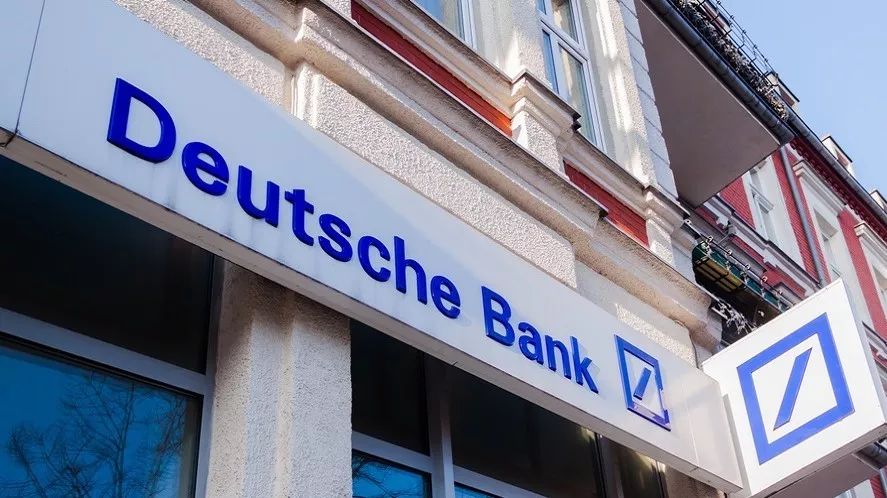Cryptographic currency lending: Innovation or emulation?
The cryptocurrency lending platform has launched attacks on the traditional banking system. The front line has been drawn and the troops have been assembled. On one side are banking monopolies, which have been supported by entrenched financial infrastructure for hundreds of years; on the other side are some cryptocurrency companies whose arms may be just a passionate call: “Abandon the traditional system, join us. Where we are going, you don't need a bank." This is a very appealing call, but has anyone noticed it?
Cryptographic currency lending: Innovation or emulation?

It seems that in the field of cryptocurrency, every few months, there will be a new trend. The first few months were DeFi, and before it was IEO and ICO. Currently, the hot topic in this field is cryptocurrency lending, which brings up an interesting question: Is the cryptocurrency lending platform a solution to common problems, or is it a way to wrap up its own gimmicks by looking for problems?
- Defeat the dry season: Will the miners' northward move be smooth in 2019?
- Wu Jihan's latest speech: Analysis of the market, space and time factors affecting the marketability of Bitcoin
- The overlord of the bank blockchain! JPMorgan blockchain network IIN will absorb 400 banks worldwide by the end of the year
Before we try to answer this question, let's take a look at some basic facts: It is extremely difficult today to get a bank loan for personal or business use. Unless you have property that can be mortgaged, it is difficult to get a loan, and even if you have assets that can be mortgaged, the interest on the loan can be very high.
And if you try to tell the bank that you plan to start a cryptocurrency business and want to get a loan, you will not only be rejected, but may even cause your account to be closed.
This is the suspicion of the traditional financial system on cryptocurrency. But they will eventually prove to be wrong, which will be proven when their last old bank houses are transformed into nightclubs and apartments.
From entity to binary code

Marshal Lion Group is a token-based lending market for non-bank loans for businesses and individuals. Bartlomiej Wasilewski, founder of the platform, said:
“The digitization of finance is inevitable, not only in the field of cryptocurrencies, but also on a broader level, just as the rise of many micro-loan platforms has enabled individuals to lend capital to businesses while monitoring how funds are being used. And be able to witness the benefits of my investment."
He added:
“In the field of cryptocurrencies, lending is more than simply copying products from traditional financial systems. Many crypto companies have difficulty accessing banking facilities, and for these entities, they can obtain other sources of funding (whether as a transitional loan or support themselves). Long-term development) is crucial."
Wasilewski's vision is slowly coming to light, but the injured traditional banking system is far from being dying. It may take a decade or more before the digital currency makes it obsolete. At the same time, individuals/enterprises that have been denied loans by financial institutions are turning to cryptocurrency loans.
But is the cryptocurrency lending agreement/platform ready for the enterprise? If so, what do these platforms offer to those entities that are rejected by traditional banks?
What can banks do, can cryptocurrencies do better?

Since the beginning of this year, cryptocurrency lending has been a slow development trend, but recently, cryptocurrency lending has suddenly detonated in a series of statements.
For example, in July of this year, Bitcoin.com partnered with Cred, a cryptocurrency lending platform. Bitcoin.com users can earn 10% interest by depositing assets such as BCH and BTC on the Cred platform. Accordingly, the Cred platform allows borrowers to obtain $25,000 or more of legal currency loans through mortgage-backed monetary assets.
On August 26, Binance announced its new cryptocurrency lending platform, Binance Lending. The platform's appeal lies in the benefits of lenders, who will receive up to 15% of annual interest rates such as BNB, USDT and ETC. On August 27th, the first round of subscriptions was subscribed by lenders eager to lock their crypto assets in less than 20 seconds.
This is a powerful illustration of the level of interest in cryptocurrency lending, and perhaps the fact that people are getting less and less interest by buying fiat bonds.
With the launch of Binance Lending, Dmitry Lazarichev, co-founder of cryptocurrency and the currency exchange/payment platform Wirex, commented:
“After discovering some interest in our customer base (for cryptocurrency lending), Wirex has been exploring the use of existing regulatory frameworks to provide cryptocurrency lending services. Consumer lending products are often subject to strict regulation, so we focus on Find the best structure for it."
Lazarichev's cautious comments suggest that the area of lending that some cryptocurrency projects are exploring is growing rapidly.
In addition, Coinbase, the largest cryptocurrency trading platform in the United States, expressed similar intentions. Its official Medium blog post in an article published in August wrote:
“In addition to hosting, we are excited to explore new ways to monetize and leverage crypto assets, such as staking, securing portfolios as collateral, and lending cryptocurrencies to trusted counterparties.”
The total amount of crypto assets locked in the cryptocurrency platform, Compound, reached $103 million, which dominates the current decentralized lending market; recently, Dharma, based on Ethereum's P2P-encrypted freighter lending platform, announced that it is phasing out existing products and turning Create a new platform connected to Compound.
There is no free lunch in the world.

The surge in cryptocurrency lending products is welcome, but in all the amazing news about the cryptocurrency lending platform completing a large number of crypto asset lock-ups and subscription quotas in record time, it seems that something is missing:
What about borrowers without any crypto assets? Don't they look like those who wear shirts, have only one business idea in their heads, and walk into the bank door to get a loan?
The answer is obviously yes. If you don't have any crypto assets available for mortgage, then Binance Lending will be like a traditional bank and won't open the door to you.
But some tools are currently being developed that will enable cryptocurrency loan products to meet the needs of a wide range of borrowers, including those with intangible collateral (such as reputation):
From the social credit scores provided by the Bloom platform to the emergence of lending platforms that allow non-traditional assets (such as NFT collectibles) to be mortgaged, the field of cryptocurrency lending is evolving. Some of these products are based on existing lending agreements (such as the Compound protocol) or based on Bitcoin itself, using a second-tier smart contract solution such as RSK and Echo.
In addition, there are a number of microfinance platforms under construction that will provide access to funds for companies that lack credit ratings.
At present, despite the many drawbacks of the traditional financial system, it is still unavoidable for most companies and individuals. However, as the quality and diversity of cryptocurrency products , including loan services, have increased, cryptocurrency lending services are receiving increasing attention .
The cryptocurrency may not solve all the problems in the world, but its potential is much better than what is currently being discussed. Give it a little time, it may leave the fading financial system behind.
Author | Kai Sedgwick
Edit | Summer
Source | Unitimes
We will continue to update Blocking; if you have any questions or suggestions, please contact us!
Was this article helpful?
93 out of 132 found this helpful
Related articles
- The oversold rebound is not strong, BTC is about to face the direction
- Non-serious discussion on blockchain finance from "self-tearing" (1): ideal and reality
- Clone coin or anchor coin: look at the stable currency classification from another perspective
- Switzerland publishes official guide to stable coins, what does this mean for Libra
- Eos will welcome an important update of version 1.8 next week, and BM said the new virtual machine is nearing completion.
- Ethereum 2.0, DeFi, privacy, Internet addiction teenager Vitalik Buterin talks about industry hotspots
- Academics use AI algorithm to promote bitcoin anti-money laundering






